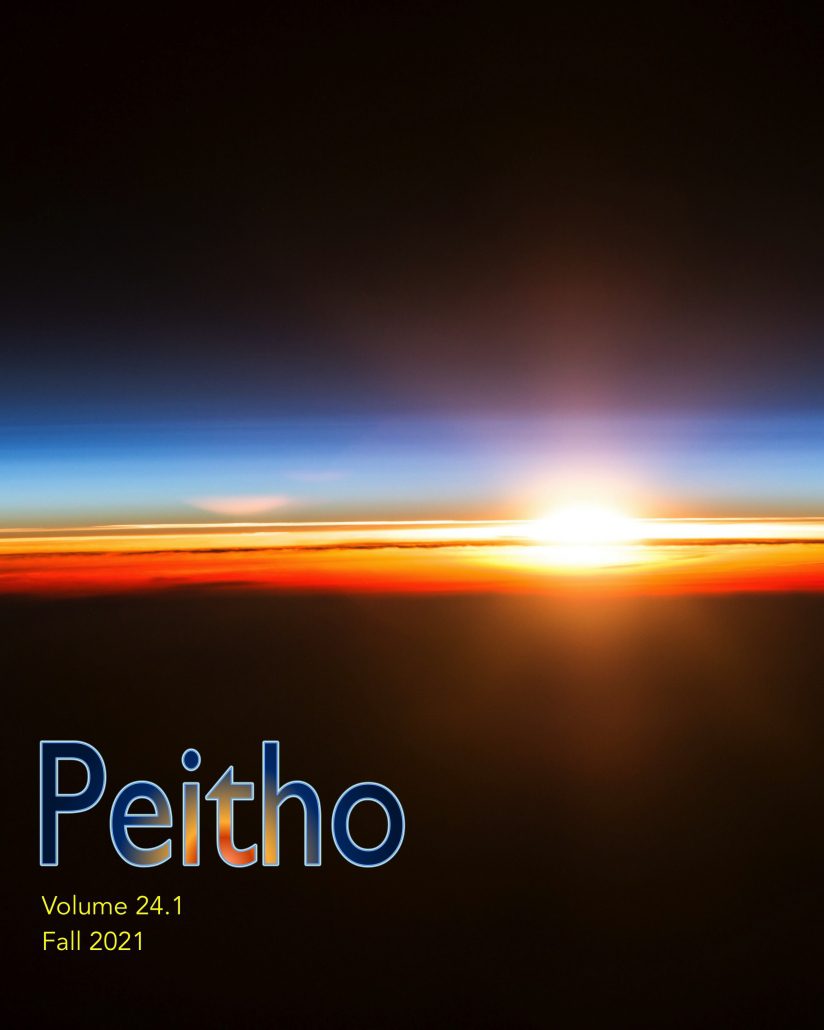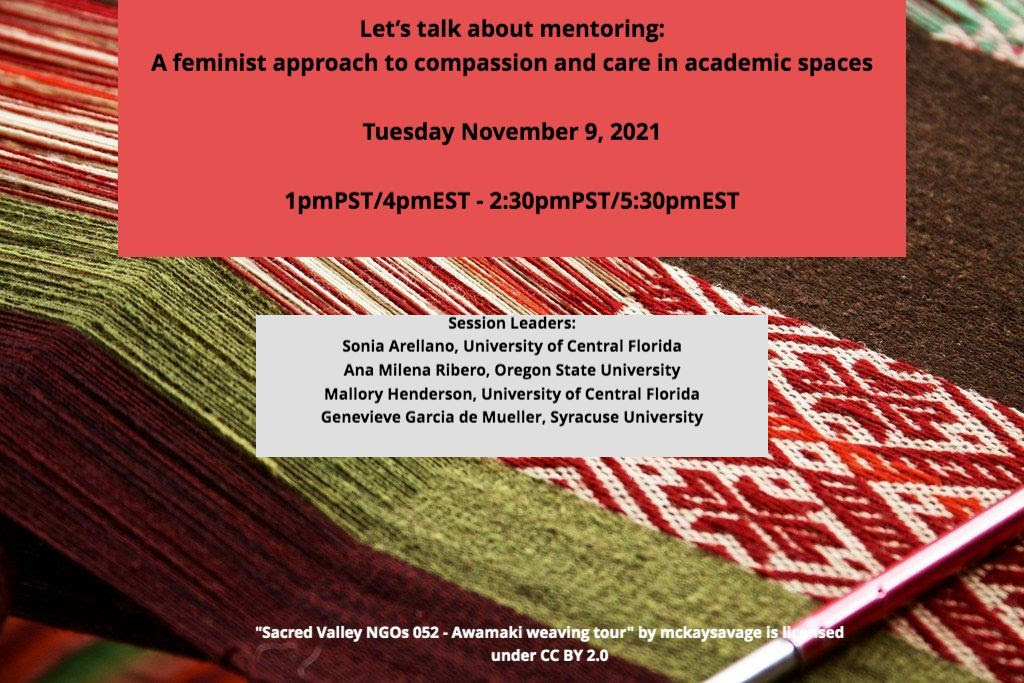
The Presidents Dissertation Award was created in 2016 to celebrate recently completed doctoral dissertations that make “an outstanding contribution to our understanding of feminist histories, theories, and pedagogies of rhetoric and composition.” This year’s judges had the honor of vetting a set of projects that not only met these standards but did more, including reflecting innovative research methodologies and illuminating oft-neglected cultural and intellectual traditions. Additionally, the 2021 submissions celebrated advocacy and praxis, were elegantly composed, and rigorously engaged—or even challenged—extant frameworks, enhancing our understanding of feminist academic work in general by inviting subsequent inquiry and exchange.
In a non-COVID year, we would have conferred this award at Feminisms and Rhetorics 2021; however, this year, we are conferring awards online. Thus, on behalf of the 2021 Presidents Dissertation Award Committee, I am pleased to announce this year’s award recipients, in alphabetical order: Emily N. Smith (Penn State University) and Luhui Whitebear (Oregon State University).
Emily N. Smith, recipient of the 2021 Presidents Dissertation Award for
“Performing Histories: Archival Embodiment as Rhetorical Historiography.”
Dr. Smith is currently a Marion L. Brittain Postdoctoral Fellow in the Writing and Communication Program at Georgia Institute of Technology, where she will spend the next year working alongside 25 other scholars from the US, UK, and Canada, developing teaching and scholarship in writing and communication that emphasizes rhetoric, process, and multimodality. In May 2021, Smith completed her PhD in Rhetoric and Composition at Penn State University, where she was also a Dissertation Fellow at the Center for Democratic Deliberation. Her dissertation project argues that artists, scholars, and community members use performance to compose and circulate shared cultural histories through a methodology of “archival embodiment,” emphasizing Suzan-Lori Parks’s The America Play, the ouvre of American photographer Charles “Teenie” Harris, and Philadelphia’s Monument Lab project.
A related article, “A View from the Hill: ‘One Shot’ Harris and The Pittsburgh Courier,” appeared in Rhetoric Society Quarterly this past spring, demonstrating some of the “idiomatic visual rhetorical strategies of representation” that Smith argues for in her dissertation. One judge wrote the following of Smith’s project:
“Outstanding areas of inquiry—how people enact historiography through performance. Great objective: understanding performance as a mode of historiography and a significant genre of public memory. Excellent notes on the pedagogical implications of interconnections between rhetoric and embodied/multimodal performances.”
Another judge concurred:
“This is a conceptually rich study of performance, embodiment, and historiography. Smith’s project demonstrates some of the heretofore ‘untapped potential’ of multimodal composition pedagogies and helps readers to think in expansive and yet exacting ways how embodying archives implicates the rhetorical practices of historical storytelling and historiography. Especially compelling is the chapter on Harris’s quotidian photography as counternarrative, and the role that contemporary bodies play in reconstituting Black Pittsburgh’s history across time.”
Luhui Whitebear, recipient of the 2021 Presidents Dissertation Award for
“Secrets of Survival: Intergenerational Storytelling and Cultural Healing Through Gendered Rhetoric and Representation in Indigenous Activist Circles.”
Dr. Whitebear is an enrolled member of the Coastal Band of the Chumash Nation and the Assistant Director of the Oregon State University Native American Longhouse Eena Haws. She completed her PhD in Spring 2020 through the Women, Gender, & Sexuality Studies program at OSU, where she also received a B.S. in Ethnic Studies, a second B.S. in Anthropology, and a M.A. in Interdisciplinary Studies (WGSS, Ethnic Studies, and Queer Studies focus). She is a mother, poet, and Indigenous activist, as well as an award-winning diversity advocate on her campus and in the Corvallis community.
Her research generally focuses on Indigenous rhetorics and she has published widely in the following areas: Indigeneity and reclaiming Indigenous identity/gender roles; murdered and missing Indigenous women; Indigenous resistance movements; and national laws and policies that impact Indigenous peoples. As such, Whitebear is passionate about disrupting systems of oppression and creating positive change in society. Her dissertation in particular works through rhetoric and representation in order to locate the Indigenous people and voices that are missing in the stories circulating through Indigenous activist communities, including both recorded stories and stories told verbally. One judge wrote the following of Whitebear’s project:
“The motivating question of study—how indigenous methodologies might fit within colonized epistemologies—provides an instructive case study. Feminist rhetorical scholars can better understand the deliberate ways that indigenous rhetorics can disrupt settler colonialism while centering practices of intergenerational healing. The result is a methodologically impressive and compelling narrative of reclaiming rhetorical sovereignty, one that not only theorizes about but also demonstrates the strength of intergenerational storytelling.”
Another judge concurred:
“This dissertation does address an important rhetorical intervention into storytelling and its relation to indigenous identity and activism. It illuminates memory and how that memory manifests in modern storytelling practices. The project is well versed in relevant academic work but extends that work. Even though the focus is on women’s studies, the same methods, methodologies, and praxis are relevant to rhetoric and composition. … The project does a good job of saying, this is just a step in the longer process, which invites more future scholarship. The methodology … offers an interesting and effective application of theories, particularly the concept of survivance.”
We offer our “Congratulations” to Whitebear and Smith, and to the faculty mentors who constituted their committees! Both of these winning projects drew simultaneously on the embodied, the historical, and the theoretical, but all of this year’s submissions were noteworthy. Thus, in addition to congratulating these scholars on their achievements, we gladly acknowledge the following individuals whose excellent work was also nominated or submitted for this award: Nancy Fox Edele (U of Washington, Seattle); Kathleen Hardesty (Texas Tech); Sarita Mizin (Lehigh U); Ruby Nancy (Eastern Carolina U); and Lena Ziegler (Bowling Green). Please look for their work, both in the ProQuest dissertation database and in their ensuing publications.
Tarez Samra Graban
Immediate Past-President
Awards Chair 2020–2022
and members of the 2021 Presidents Dissertation Award Committee
Moushumi Biswas
Maureen Johnson
Amanda Pratt
Patrick Thomas


 The Coalition mourns the passing of bell hooks on December 15, 2021. In recognition of her immeasurable legacy, the editorial team at Peitho, the journal of the Coalition, invites short memorial pieces for the winter 2022 issue. Contributions might reflect on how hooks influenced feminist teaching, research, activism, and more.
The Coalition mourns the passing of bell hooks on December 15, 2021. In recognition of her immeasurable legacy, the editorial team at Peitho, the journal of the Coalition, invites short memorial pieces for the winter 2022 issue. Contributions might reflect on how hooks influenced feminist teaching, research, activism, and more.












